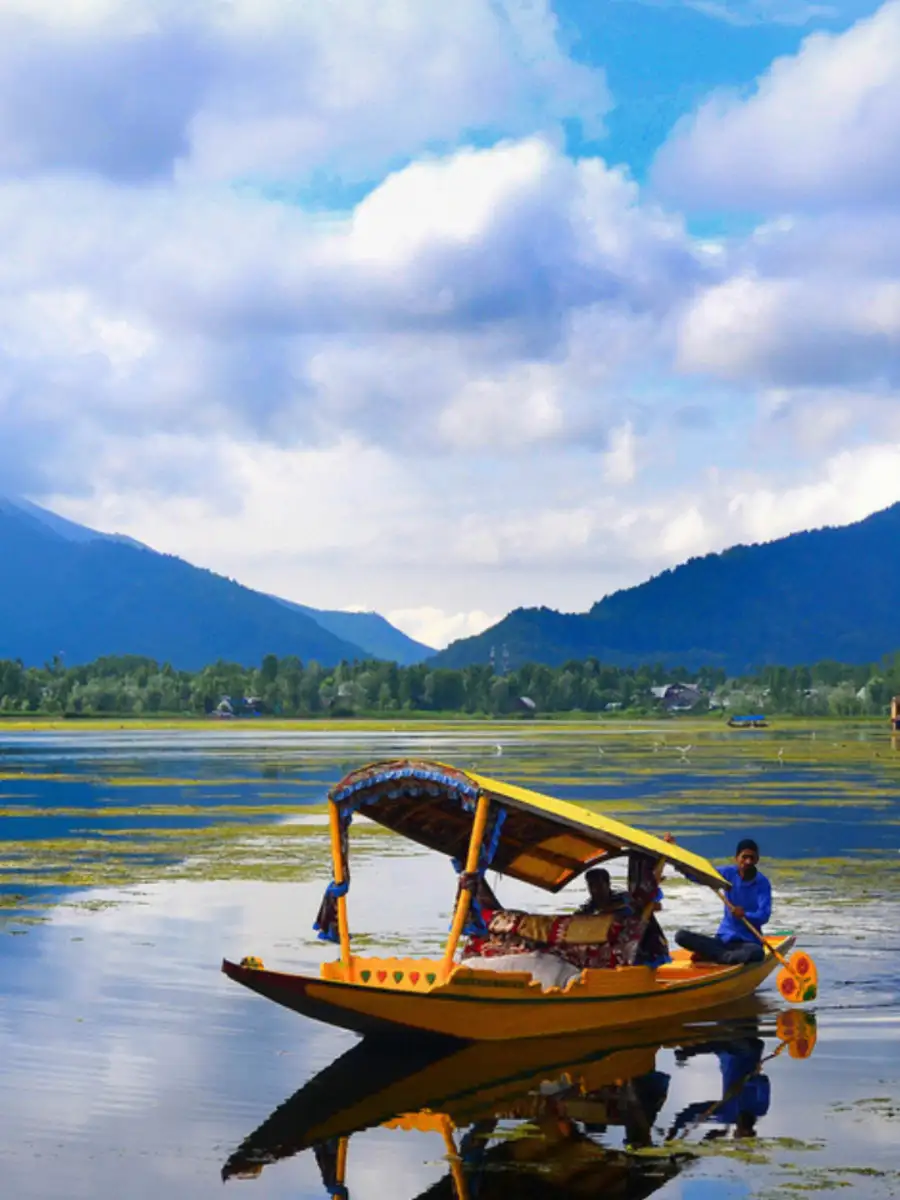

As World Environment Day 2025 dawns, the focus shifts to responsible travel, with eco-tourism taking center stage. A recent report highlights that 87% of Indian tourists are planning eco-conscious holidays, emphasizing sustainability in their travel choices, from transportation to accommodations. Eco-tourism, a sustainable travel approach focusing on conserving the environment, supporting local communities, and educating visitors, is rapidly growing in India. For nature enthusiasts seeking mindful and immersive experiences, India offers a plethora of destinations that seamlessly blend conservation with culture. Here are eight eco-tourism gems to explore:
1. Kerala: Often dubbed "God's Own Country," Kerala stands as a shining example of eco-tourism. Its serene backwaters, lush greenery, and pristine beaches offer many sustainable travel options. Visitors can stay in eco-friendly houseboats on the backwaters of Alleppey or explore the Periyar Wildlife Sanctuary, renowned for its responsible tourism initiatives. Supporting local communities by savoring local cuisine served on banana leaves and opting for community-run homestays further enriches the experience.
2. Sikkim: This Himalayan haven is a pioneer in eco-tourism, emphasizing environmental preservation and local culture. Sikkim was India's first state to be fully organic, demonstrating a strong commitment to sustainable agriculture and eco-friendly tourism. Travelers can explore Gangtok, the capital city, with its clean streets and panoramic mountain views, or visit the stunning Tsomgo Lake.
3. Ladakh: With its stunning landscapes and fragile ecosystem, Ladakh has embraced sustainable tourism. Solar-powered hotels, community-based trekking programs, and restrictions on plastic use are common. Visitors can responsibly enjoy the unique blend of Tibetan culture and pristine nature. The stunning Pangong Lake, Nubra Valley's sand dunes, and historic monasteries like Hemis and Thiksey offer a mix of natural beauty and cultural richness. With an increasing emphasis on eco-tourism, Ladakh offers responsible travel experiences like village homestays and eco-lodges.
4. Meghalaya: Known as the "Abode of Clouds," Meghalaya is blessed with abundant rainfall, diverse flora and fauna, and fascinating living root bridges. Mawlynnong, recognized as Asia's cleanest village, exemplifies sustainable living. Community-led initiatives promote cleanliness, waste management, and conservation.
5. Himachal Pradesh: The mountainous landform of Himachal, bordering Tibet and Jammu & Kashmir, has rich biodiversity. Spiti Valley offers sustainable tourism with community-led homestays and pristine natural landscapes. The Ecotourism Society in Himachal has been practicing Community-Based Ecotourism (CBET), a collaborated effort towards the conservation of nature and cultural resources in the region. Various approaches like Participatory Forestry Management for the development of forests have been initiated.
6. Andaman and Nicobar Islands: This tropical paradise protects its marine and land biodiversity through sustainable tourism practices. Tourists can enjoy eco-conscious activities like snorkeling, diving, and island hopping while contributing to the conservation of coral reefs and local wildlife. Opting for sustainable accommodations like Barefoot in Havelock ensures a minimal environmental impact.
7. Nagaland: Khonoma village, near Kohima, is a model of rural development, showcasing community-led conservation efforts and sustainable practices. Known as India's first "green village," Khonoma has embraced organic farming, effective water management, and the promotion of ecotourism.
8. Coorg, Karnataka: Coorg's coffee plantations and misty hills create an ideal environment for eco-friendly travel. The local community has implemented waste management practices, conservation projects, and sustainable agriculture, making it a model destination for eco-conscious travelers.
As travelers increasingly prioritize sustainability, India's eco-tourism destinations offer a harmonious blend of natural beauty, cultural immersion, and responsible practices. By choosing eco-friendly accommodations, supporting local communities, and minimizing their environmental impact, visitors can contribute to preserving these precious ecosystems for future generations. Initiatives like the Swadesh Darshan 2.0 scheme and the promotion of eco-labels further encourage sustainable tourism practices across the country. The shift towards regeneration, where the goal is to leave places better than we found them, marks a promising step forward for the travel industry and the planet.